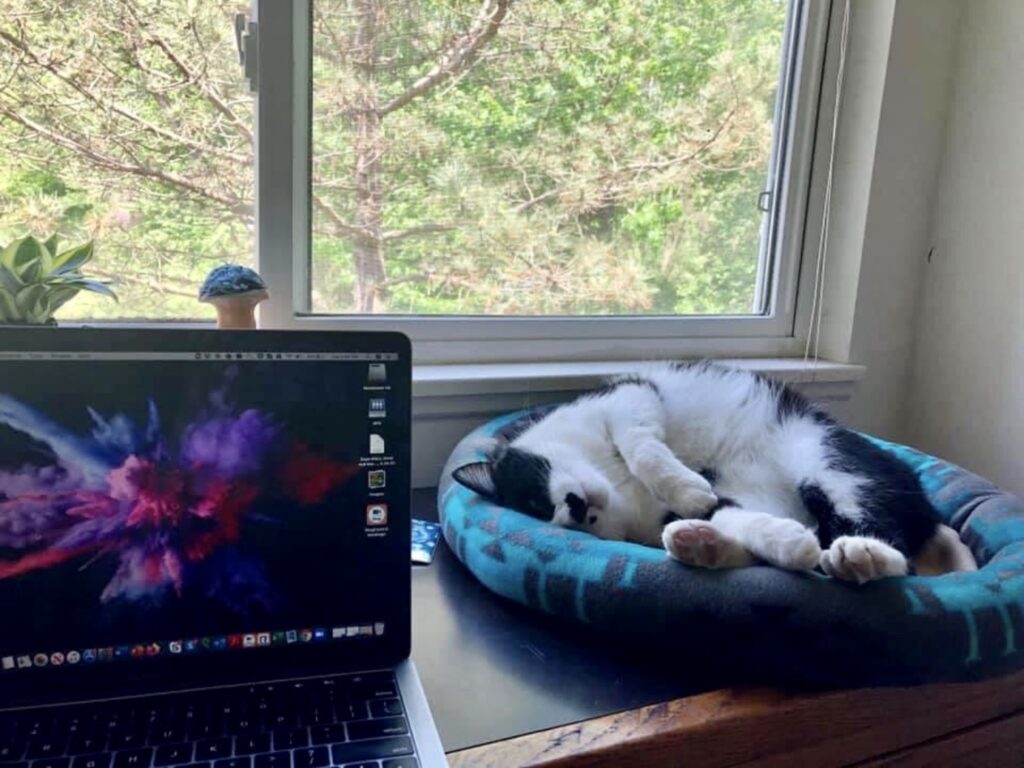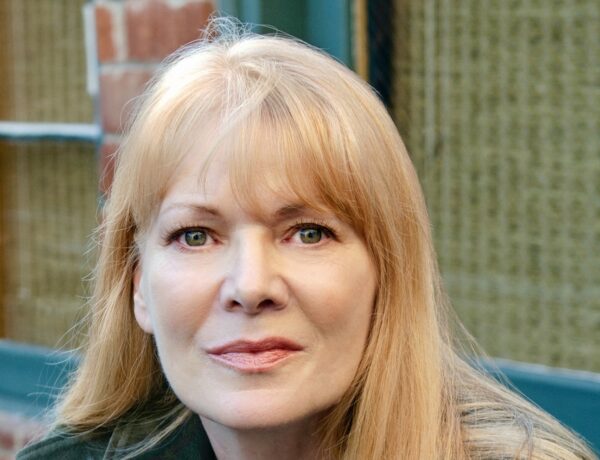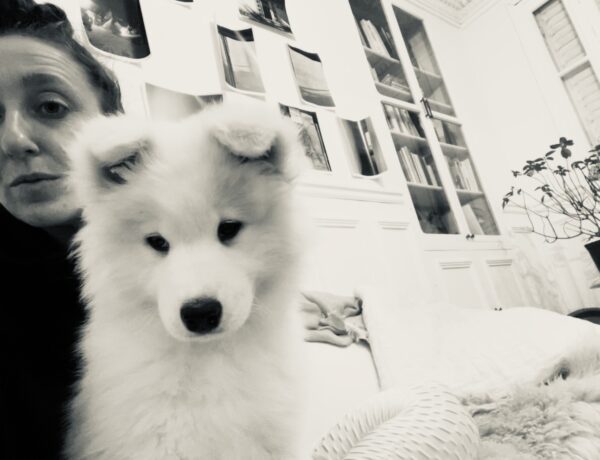Oindrila Mukherjee is a writer, journalist, and creative writing professor based in Grand Rapids, Michigan. Born and raised in India, she began her career as a journalist for The Statesman, India’s oldest English language newspaper.
Throughout her career, Oindrila has received numerous awards and honors for her contributions to the literary world. She was the creative writing fellow in fiction at Emory University from 2009 to 2011 and has received the Nehru Chevening Centenary Scholarship from the Cambridge Commonwealth Trust, the Diana P Hobby Prize from Inprint Houston, and a Tennessee Williams Scholarship from the Sewanee Writers Conference.
Oindrila is also a contributing editor for Aster(ix), a literary and arts magazine that champions social justice, and has created the book series Bottom Shelf for the Indian magazine Scroll.in, where she explores lesser-known or forgotten Indian books in English. In January 2023, Oindrila’s debut novel, The Dream Builders, was published in the US by Tin House Books, and it is forthcoming in Australia and the UK by Scribe Publications.
Looking for inspiration to help you achieve your writing goals? Subscribe to our newsletter for exclusive insights into the routines, habits, and techniques of some of the most celebrated authors in history.
Hi Oindrila, welcome to Famous Writing Routines, we’re so glad to have you here with us today! Can you tell us about your background as a journalist in India, working for The Statesman, and how that influenced your writing style?
I worked as a reporter for a daily newspaper in my hometown of Calcutta when I was in my twenties, straight out of university. I don’t think that my work as a journalist influenced my writing style very much. As a reporter I had to file brief news stories that focused on facts. There was a lot more legwork and interviewing people than writing and certainly not much creative writing.
In fact, one of the reasons I quit the profession was because I wanted to write more creatively. However, working as a journalist in India certainly influenced me in other ways. Growing up I had a pretty sheltered life, but as a reporter, I met people from very different backgrounds than my own, and I got to visit places that I had had no clue about until then.
I would visit the police headquarters for press briefings, the railway stations to investigate bomb blasts, factories when they were on fire in the middle of the night and so on. This exposure was life transforming and an eye opener in terms of the everyday realities faced by most Indians. Realities that would later inform the stories I wanted to tell.
Your diverse educational background, attending university on three continents, has no doubt enriched your perspectives. How has this multi-cultural exposure manifested itself in your teaching and writing?
I don’t know if it’s the fact that I attended university on three continents or just the fact that I have moved around a lot. I’ve lived in a total of ten cities and in four states even in the US since I moved here. The more I’ve traveled, the more I’ve had to think about the idea of home and where I belong.
When you’ve lived in so many places, the sense of being an outsider prevails everywhere you go. I think that informs my writing and makes me examine and question things that perhaps wouldn’t if I felt very settled. My characters often occupy liminal spaces, not quite fitting in anywhere. While this may seem unique to me, I think these days, a lot of people feel this way.
In terms of teaching, I think that like most immigrants, I am able to bring a uniquely international perspective to my classes. I try to introduce my students to texts from around the world, works that were not originally written in English, writers who live in other countries, etc. I find that I don’t have to be very intentional about this. It happens naturally because that’s my own experience and that’s where my interests lie.
Can you walk us through your typical writing routine and how you balance it with your teaching responsibilities at Grand Valley State University?
My writing routine is completely haphazard! I wrote this novel partly in India at my parents’ home, partly in my apartment in Grand Rapids, partly in coffee shops. I’m not very disciplined with my writing. I’ve gone months without writing, and then binge written for a few days.
Sometimes, I write in bed late at night. I’m in awe of people who say they wake up early and get fully dressed and start writing. You will not hear that from me. I love writing in my pajamas. Initially, I wrote many pages of The Dream Builders in longhand. But I ended up throwing most of that away and starting over, so I’m not sure how effective it was. Balancing writing with teaching as well as other commitments and duties at university is never easy as anyone will tell you.
During the pandemic I was teaching extra classes, figuring out how to teach online, attending emergency meetings, advising students for hours. Looking back, I can’t remember when I found the time to edit my manuscript as many times as I did. I wish I’d kept a count of the cups of coffee I drank during this time. I drink a lot of coffee while writing. Dark chocolate helps too. No wine!
Do you struggle to stay focused while writing? You’re not alone! That’s why Famous Writing Routines recommends Freedom – the ultimate app and website blocker for Mac, Windows, Android, iOS, and Chrome. With over 2.5 million users, Freedom helps writers stay on task and avoid distractions. Get started for free today and reclaim your productivity!
Your work has been published in several prestigious literary magazines and journals, such as Salon, Kenyon Review Online, and The Oxford Anthology of Bengali Literature. What advice would you give to aspiring writers looking to get published?
I would advise people to read what is being published, at least in the genre they are trying to write. And to write as much as possible because if you submit 3 pieces you may not get any published, but if you submit 30, you may get one published. Try different things, work on your craft, and respect the process of editing and revision.
As a creative writing teacher, what are your thoughts on the role of literature and storytelling in society today?
Humans have an innate need to tell stories. We’ve been doing it for centuries, though the form the stories have taken may have changed. Audiobooks, podcasts, video games, TV series — these are all forms of storytelling. I teach in a Writing department where we offer classes not only in creative writing but a range of things like game culture, multimodal composing, document design, etc, all of which revolve around the central idea of telling stories.
You just have to look at the number of people self-publishing these days or the number of books being reviewed online to realize that people are hungry for stories. When I look at social media updates and posts, whether on Instagram or Tik Tok, I see how much people want to share their stories. I have to touch on the subject of representation here as well.
I feel encouraged by the emergence – and celebration — of more diverse voices in recent times. There’s rich literature being produced by BIPOC writers in America. I hope Western readers begin to discover more and more international authors and translated works. Stories help us connect with one another across cultures and distances, especially during an event like the pandemic which, in a perverse way, has united all of us. This is a good time for us to really begin to listen to one another’s stories.
If you could have a conversation with any author throughout history about their writing routine and creative process, who would that person be?
You know, I find it more interesting to talk to creative people in other fields about their process – musicians, painters, sculptors, actors and so on. I already know what authors do, and if they have some weird, eccentric habits, sure I’d love to hear. But it’s very inspiring and fascinating to witness the process of people working with different art forms. This is one reason I love going to artist residencies that include people from different fields. We can learn a lot from each other.
I’d love to know about the books you’re reading at the moment. What have been some of your favorite reads?
I’ve been on a book tour for the past couple of months, and I’ve had wonderful conversation partners at these events whose new books I’ve been reading. I began with How Not to Drown in a Glass of Water, the new novel by Angie Cruz, who is one of my favorite contemporary writers.
The other authors have published brilliant, critically acclaimed short story collections – The Islands by Dionne Irving, When Trying to Return Home by Jennifer Maritza McCauley, What We Fed to the Manticore by Talia Lakshmi Kolluri, A New Race of Men From Heaven by Chaitali Sen.
I recently did a virtual event with the writer May-lee Chai whose new book Tomorrow in Shanghai is terrific. I now want to read everything she’s ever written. I didn’t plan on this when I was reaching out to all these authors, but it turns out that all my conversation partners since my book launch are women writers of color. Turns out our work has a lot of overlapping themes which is very cool.
Apart from these current reads, I have too many favorites to list, and they include poetry and nonfiction. I read several novels with multiple perspectives as I was writing The Dream Builders. Some of my favorites among those are Karl Taro Greenfeld’s Triburbia, Naghib Mahfouz’s Midaq Alley, Yaa Gyaasi’s Homegoing, Tommy Orange’s There, There. I also recently made a list of books about urban development and real estate for Electric Literature that you can read here.
What does your current writing workspace look like?
Alas, I have not been writing lately. I’ve been busy with events for my novel and teaching. But I was looking through photos of my workspace(s) when I was finishing The Dream Builders, and I realized that most of them featured a feline. I fostered nine cats during the pandemic (one after the other, not at the same time.) And I suddenly remembered one of the things that got me through those two years and helped me finish my book. Bless their little hearts.

Affiliate disclaimer: Some links on this website are affiliate links. We may earn a small commission if you make a purchase through these links, but only promote products we truly believe in. We disclose affiliate links and give honest reviews.



No Comments